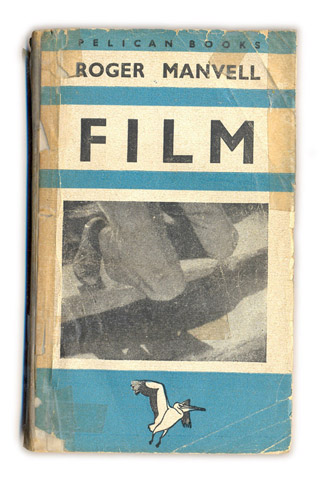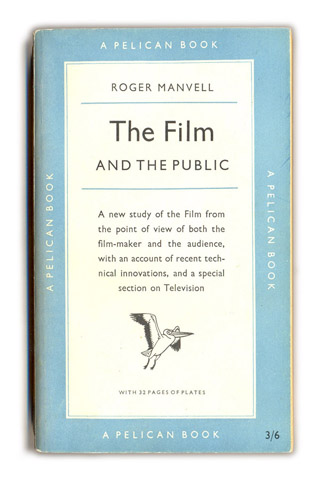“There are at least two intriguing recent trends reflected in the publications of Geoff Dyer‘s Zona: A Book About a Film About a Journey to a Room and Adam Mars-Jones’s Noriko Smiling,” writes Jonathan Rosenbaum for Film Comment. “Both are examples of a current vogue for book-length studies of masterpieces (Tarkovsky‘s Stalker and Ozu’s Late Spring, respectively) and both are examples of film criticism practiced by nonprofessionals who, in this case, happen to be prestigious literary Brits. A couple of much older attitudes underlying the two books are a view of cinema as literature by other means and, conversely, a view of film analysis as a literary and linear pursuit.” It’s “the phenomenon of home viewing, which has in the last 30 years made every viewer a potential ‘expert,'” that we have to thank for volumes such as these, he argues, before turning to the books at hand, particularly Zona.
Further in: “Book-length film studies by amateurs can be traced back to Salman Rushdie’s 1992 The Wizard of Oz, the volume that launched the BFI Film Classics—possibly the most bountiful book series in the history of film criticism in any language, and one that sums up some of the gains criticism generally can boast over the same period, when DVD extras, building on the precedents established with laserdiscs, started to become institutionalized.” In a sidebar, he highlights “Five Favorite BFI Classics Volumes.”
Speaking of Zona, in the Berlin Review of Books, Thorsten Botz-Bornstein, a self-proclaimed academic philosopher, notes that, for Dyer, Tarkovsky’s “Nostalghia is a sort of self-celebratory, pretentious kitsch movie that he has despised from his early youth on while Stalker was a revelation. Watching it for the first time in a godforsaken cinema in Gloucestershire in the 1980s, he realized that the film was bound to determine his entire future existence. Well, that is what Nostalghia was for me. Is that how some people become writers and others philosophers?”
“In his excellent new monograph, Ferocious Reality: Documentary According to Werner Herzog, Eric Ames uses Werner Herzog’s documentaries, nearly 30 films, to make a case for an evolved understanding of nonfiction cinema,” writes Clayton Dillard at the House Next Door. “However, Ames doesn’t wish to simply attempt a blurring of lines between fiction and nonfiction in Herzog’s work; rather, he takes up Richard Schechner’s concept of ‘restored behavior’ (or ‘twice-behaved behavior’), what Ames will refer to as ‘performance,’ and demonstrates how Herzog’s films ‘perform’ under this operative logic. Drawing on film studies titans like Bill Nichols, Linda Williams, and P. Adams Sitney for his framework, Ames lucidly addresses these larger issues while ‘performing’ meticulous close readings of his own, organized into seven chapters, by theme. What materializes is a fascinating, provocative examination of Herzog’s complex oeuvre, written with a simultaneous eye for irreverence and certitude, not unlike Herzog’s own work.”
“Montreal-based film critic and programmer Kier-La Janisse explores how her own life as an adopted child with disruptive behavioral issues is intricately wired to a particular strain of cinephilia in House of Psychotic Women: An Autobiographical Topography of Female Neurosis in Horror and Exploitation Films.” Steve Dollar introduces an interview at GreenCine Daily.
“Hollywood pushes for and instigates in its stars and in its screen faces what it does not want to see happen and that it punishes for when it does: the loss of the very thing it wants to capture and capitalize on.” Having attended Andrew McCarthy’s reading from his new book, The Longest Way Home, Masha Tupitsyn offers a few thoughts at berfrois.
James Agee would have turned 103 today. Brian Berger presents a brief appreciation at HiLobrow.
For the New York Times, Erik Piepenburg talks with Metallica lead guitarist Kirk Hammett, who’s got a new coffee table book out, Too Much Horror Business, showcasing Hammett’s “vast collection that includes horror movie posters, toys, dolls, games, costumes, masks, original artwork and other mementos.”
“If someone’s looking to buy a film-related book for the cinephile in their life this holiday season, what would you recommend?” asks Matt Singer and nearly 70 critics reply with their well-considered recommendations.
The Guardian‘s asked dozens of writers to select their favorite books of 2012, among them, Slavoj Žižek: “What I read with greatest pleasure in 2012 were the two short books by Robert Pippin, the first among American Hegelian philosophers: Hollywood Westerns and American Myth and Fatalism in American Film Noir. Surprisingly for the author of more than a dozen studies of Hegel’s logic and phenomenology, the books are about US popular culture: the first deals with the problem of passage from the violence of the Wild West to the modern rule of law in classic westerns (The Searchers, Red River), while the second, dedicated to the problem of subjective agency and fate in film noir, culminates in a perspicuous reading of Tourneur‘s classic Out of the Past. A Hegelian analysis of western and noir—can one imagine a better combination of philosophy and pleasure?”
More of the best books of 2012: The Spectator‘s polled its contributors (parts 1 and 2), and the Washington Post‘s selected its top ten. And Cartoon Brew‘s rolled out its “Animation Holiday Gift Guide.”
Viewing (59’15”). As a sort of followup to Michael Fox‘s conversation with David Thomson about The Big Screen (among many other things), here’s Robert Horton‘s.
Covers of Roger Manvell’s Film via the Pelican Project at things.
Updates: Following up on the one recommendation she sent into Criticwire, Farran Nehme writes up nine more, adding a note at the end of each superb blurb regarding the sort of cinephile each book might be ideal for.
The New York Times has released its annotated list of the “100 Notable Books of 2012.” And Slate staffers pick their favorites of the year.
For news and tips throughout the day every day, follow @KeyframeDaily on Twitter and/or the RSS feed. Get Keyframe Daily in your inbox by signing in at fandor.com/daily.





